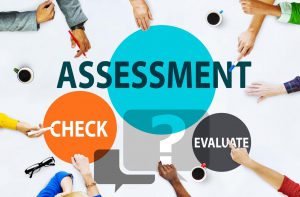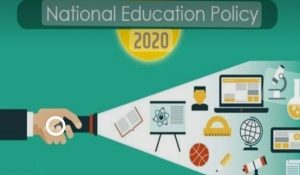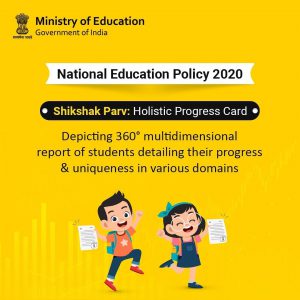“Assessment is the engine which drives student’s learning.”

According to National Education Policy (NEP) 2020, “Assessment” is an ongoing awareness of students’ learning and their needs, rather than an occasional event in the program.
EVOLUTION
The journey of students’ assessment has gone a long way over the years from oral testing to written test to public examination to internal and external assessment to continuous and comprehensive evaluation to competency-based assessment.
In NEP 2020, the role of assessment in education is finally getting the attention it deserves. It will definitely make India globally competitive in education.
OBJECTIVES OF ASSESSMENT
- Imbibe regular, formative and competency-based methods
- Promote learning and all-round development of students
- Test higher-order skills (analysis, critical thinking and conceptual clarity etc.)
- Help entire schooling system in revising continuously teaching-learning process to optimize learning.
COMPETENCY BASED ASSESSMENT: A REFRESHING STEP

- New framework: The conventional 10 + 2 school curriculum structure is to be replaced by a 5+3+3+4 structure corresponding to ages 3-8, 8-11, 11-14, and 14-18 years respectively.
- Focus: To measure learning outcomes at all levels of the newly proposed schooling system, with testing at 3rd, 5th, and 8th grade levels pressure from 10th and 12th exams and to track progress at multiple stages to facilitate early course correction.
- Formative assessment: Assessment of core concepts and knowledge, higher order skills and its application in real life situations on an ongoing basis covering smaller portions of the syllabus, will help students to move away from rote learning as well as the teachers to change their mindset from “syllabus completion” to “competency attainment”.
- Liberty to students: Student choice to be incorporated in the 10th and 12th grade board exams. The policy suggests doing so by offering freedom of subject choice, allowing best of two attempts, and choice of difficulty level (standard and higher level).
HOLISTIC REPORT CARD

- 360-degree development: The report card will be a “holistic, 360-degree, multidimensional report”, reporting on the learners’ progress in “cognitive, affective, socio- emotional, and psychomotor domains”.
- Different from traditional way: In the past, the major element that was captured in the report card was memory and retention. In the 360-degree report card, all aspects of the personality of an individual would be captured making it more relevant and actionable.
- Multi assessment: It will include self-assessment, peer assessment besides teacher assessment. It will provide progress of the child in inquiry-based learning, quiz, role play, group work, portfolios, etc.
- Involvement of parents: It will form an important link between home and school and will be accompanied by parent-teacher meetings in order to actively involve parents in their children’s holistic education and development. The progress card would also provide teachers and parents with valuable information on how to support each student in and out of the classroom.
ESTABLISHING A NATIONAL ASSESSMENT CENTER: A GAME CHANGER
The proposal to set up a national assessment center, the PARAKH (Performance Assessment, Review, and Analysis of Knowledge for Holistic Development), as a standard-setting body under the Ministry of Education indicates the government is keen to provide a regular check on the education system. In the long term, this could help India align with global benchmarks such as the Programme for International Student Assessment.
